The 1950s - Part I - KLVL, KMCO, KLBS, KBRZ, KCOH, KYOK
EDITED (BELOW) 9/8/2023
As mentioned previously, KLVL signed on May 5, 1950, at 1480 kc, licensed to Pasadena. (Posts including mentions).
On April 16, 1951, KMCO signed on in Conroe at 900 kc. In 1979, the call letters of the Conroe station were KIKR; presently, KREH, licensed to Pecan Grove and a Vietnamese language station known as Radio Saigon, operates on the 900 frequency.
After the death of W. Albert Lee in November, 1951, Trinity Broadcasting Corporation purchased KLEE from his estate for $300,000. Trinity was made up of B.R. and Gordon McLendon of Dallas and oilman Hugh Roy Cullen of Houston. They owned KLIF, Dallas, KELP, El Paso, and the Liberty Broadcasting System. The station’s new calls were to be KLBS and the change took place on April 25, 1952, probably at midnight since both stations operated 24 hours a day. Ray A. Lewis was general manager of Trinity; Tom Cavanaugh was to be the General Manager of KLBS.
Gordon McLendon also said plans were being made to move the Liberty network’s headquarters to Houston from Dallas by sometime early in 1953 with about 150 jobs accompanying the move. KLBS would be the key station of the Liberty Broadcasting System and there would be a 100% change in the programming of the station. “Our goal is to salute Houston daily with top local and national entertainment, public interest and sports features,’ McLendon told the Houston Chronicle. The proposed move never took place as the network fell apart. McLendon was to sell KLBS in less than 2 years, only to repurchase it in 1957 and flip the call letters to KILT.
The Liberty network’s re-creations of baseball games had been a huge success and are what the network is mostly remembered for but there was a full range of programming offered including soap operas and newscasts originating from Washington, D.C., with such noted journalists of the day as William L. Shirer, Raymond Gram Swing, Joseph C. Harsh and John C. Vandercook. By the end of 1950, Liberty was supplying programming 16 hours a day and by August, 1951, had 431 affiliates, second only to the Mutual Broadcasting System. In Houston, LBS programs were heard on KATL. Less than a year later, 100 of the affiliates had pulled their affiliations, the broadcast day had been cut to 8 hours and the network was unraveling. Finanical problems were at the fore, with the loss of a $1,000,000 advertising contract with Falstaff beer the biggest single blow. This is what had led Hugh Roy Cullen to buy a stake in the network. Cullen, probably the richest Texan of the period, was impressed with McLendon and put $1,000,000 into the company without ever looking at the books. The network continued to lose money, however, and a second major blow was the refusal of Western Union to provide the wire service accounts that were necessary to the re-creation of ball games, a refusal that was upheld by a Federal judge in Chicago on April 14, 1952, one day before the start of the ‘52 baseball season.
For a first hand account of a McLendon sports recreation, see Don Keyes' account of working with McLendon, posted online a few years ago. Keyes was to be the National Program Director of the McLendon station group in later years, after the demise of LBS, and did mornings on KILT in Houston in the late 50s, being most famous for a flag-pole sitting stunt at Gulfgate Mall in 1957 (story here).
For a history of Gordon McLendon and his Liberty Broadcasting System and his ‘home’ station KLIF, see this excellent, comprehensive site maintained by Steve Eberhart. Also see the biography Gordon McLendon: The Maverick of Radio by Ronald Garay.
KBRZ, Freeport, came on the air at 1460 kc at the end of August, 1952. A detailed account of the sign-on and early years of the station has been posted here.

The first week of August, 1953, a group of investors headed by Robert C. Meeker acquired the license to KCOH and announced plans to change the programming over to serve Houston’s Black community. The office, technical and sales staff were to be retained but an all new air staff would be brought in. Vernon Chambers, who for three straight years had been voted one of the nation’s best Black disk jockeys, was named program director. Walter Rubens was the commercial manager. KCOH was the first Black-owned radio station in Texas according to the Handbook of Texas and only the second programmed for a Black audience in the state.
The official switch over of programming was supposed to be on August 21, 1953, but a look at the daily listings indicates the changes may have been made gradually or the station might have already been programming some toward the Black audience before the change of ownership. Programs included Harlem Breakfast and Harlem Nights, Tuxedo Junction and Cool and Easy. It is, of course, impossible to know what the musical content of those programs was just from the names. On the 21st, the newspaper schedule showed Chambers Corner, King Bee and Hattie Holmes, Sweet and Solid, Jammin’ Jamboree, Swing Low, the Rhythm Parade and the PM Ramble on the schedule.
A similar switch seemed to be taking place on KATL in the same time period. Program listings included Dixie Downbeat, RFD 1590, and the Chuck Wagon Call that had been the station’s morning show for years, but also Trummie Cain and Ramblin’ Round, both of which were later seen on KCOH schedules. In early 1954 King Robinson, General Manager and part-owner, announced that he and William H. ‘Little Eva’ Talbot, majority owner, had received an inquiry from a couple of Louisiana businessmen interested in buying the station. An announcement was expected soon and it came on the 15th of January. Jules Paglin and Stanley Ray, who owned stations in New Orleans, Baton Rouge and Lake Charles, bought KATL for $200,000. Their group was known as the ‘OK’ chain and they were considering KYOK as new calls on 1590. No changes in programming were planned, it was stated.
KYOK was to become Houston’s second Black radio station; program changes apparently were brought into place gradually. Like most stations, KATL/KYOK was block programmed. Paglin and Ray eventually were to own a chain of black radio stations, including WBOK, New Orleans, WGOK, Mobile, WLOK, Memphis and WXOK, Baton Rouge. The new calls first appeared in the listings in the Chronicle on March 10 but not until March 18 in the Post.
In the summer of 1954 KYOK program listings still included Chuck Wagon Call, Let’s Polka, Gabe Tucker, Serenade in Blue, Kosher Kitchen and Hillbilly Hits, along with Sweet Chariot, Hotsy Totsy, Spiritual Sunbeams, and Little Betty. Hotsy-Totsy was to be a name of a KYOK jock for years. Tucker, a country dj, had worked on KATL, KLEE, and was to be on KRCT and KIKK for years.

Other stations, including KREL, also played rhythm and blues but KCOH took note of the new competition running ads touting itself as ‘Houston’s First and Only Negro Radio Station.’ The line-up on 1430 by this time included Chamber’s Corners, King Bee, Hattie Holmes, the Great Montague and Ramblin’ Around. A real estate program had been added on Sunday afternoons, patterned after a successful show on KXYZ, presented by a Black realtors association and aimed at Black homebuyers. It has also joined a new network, the 45 station strong National Negro Network, and started airing the first network program, a soap opera called Ruby Valentine, daily at 11am. There were plans for 3 more soaps and a dramatic series; network programs were distributed on tape.
EDIT TO ADD: King Bee, on KCOH, real name was Clifton Smith. He had an airshift on KNUZ in 1950 and is pictured in the montage at the top of the blog. He (and Gladys 'GiGi' Hill were nominated for the Texas Radio Hall of Fame this year (2023) but did not receive enough votes to get in.


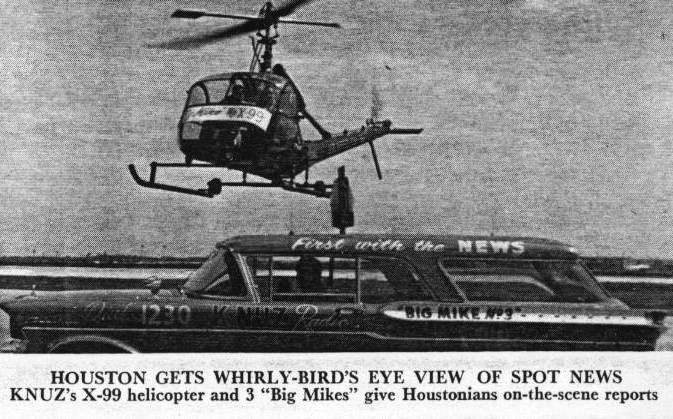
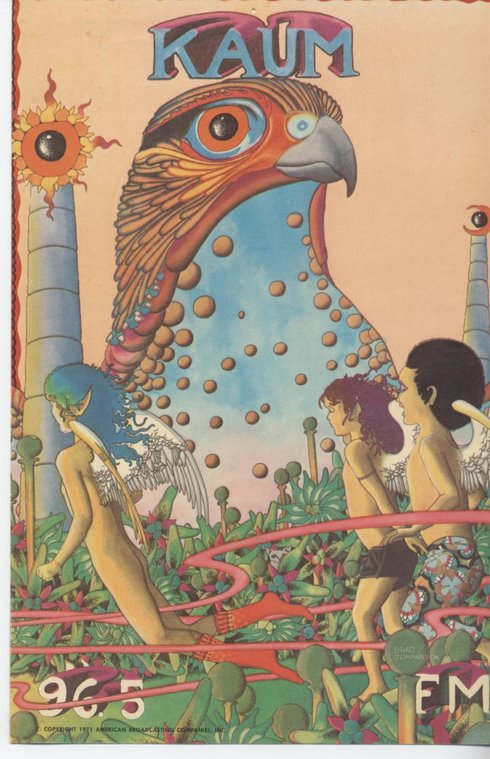
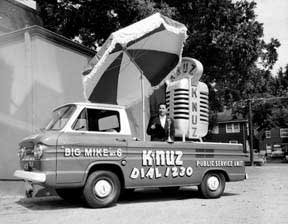


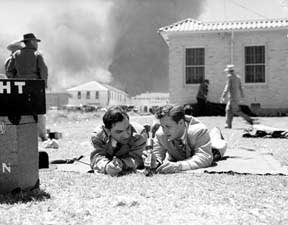
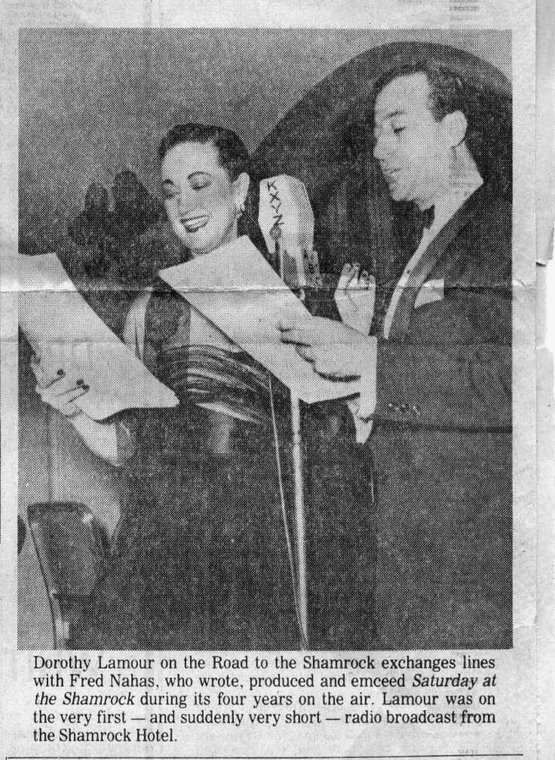
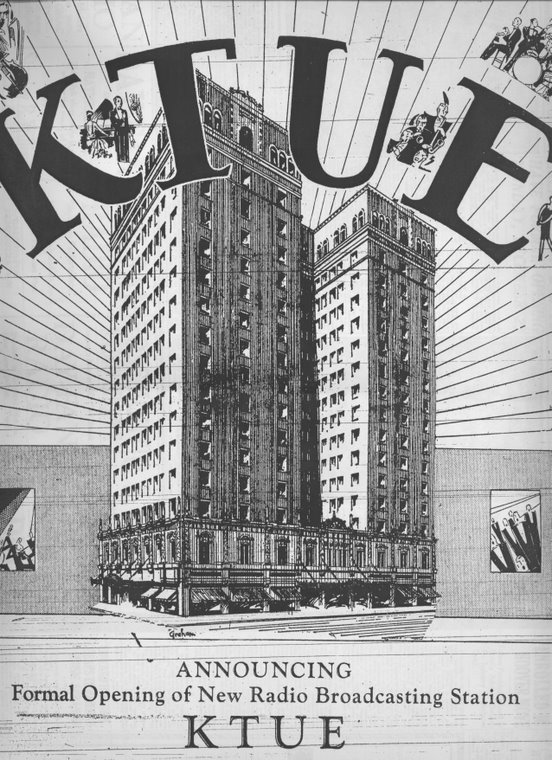
20 comments:
I was interested to see you mention my father, Walter Rubens, in your article. It's nice to know he's still remembered. He went on to own radio stations in NM, and was President of the National Association of Broadcasters and on the board of the Associated Press.
Thanks. I did not recognize the name or have anything else on his career. If you have anything more to add concerning KCOH or your father's career in Houston, please contact me.
I found the following obit on an AP website:
http://www.ap.org/cleartime/r.html#rubens
KYOK's 50's DJ's Dizzy Lizzy, Hotsy Totsy and Zing Zang made me and my brother who we are today. We were white kids in Memorial who disliked KILT and thought Elvis was a modest talent at best. I listened to an hour of KYOK every night from the time I was six until I was ten or twelve. It was the best station ever!!!
My Aunt worked for KTHT in the 1950's. She was the "Weather Angel" and sang various jingles for client commercials. I have some old vinyl records, 78's I believe of her recordings but no way to play them. Also have a vintage cup and plate with the KTHT logo. Her name at that time was Peggy Craycraft. Wondering if you have any additonal information about her tenure at KTHT? Charlotte
Wow, sure would be great to listen to those recordings. Sorry but I don't know anything more about your aunt but will keep an eye out.
hello I am 76 years old and I lived in houston from 1952 to 1966. I remember kcoh as being the radio station of choice among my peers.Is king bee still in houston?how about another deejay whose last name was cain.when I came across your web page it brought back so many memories of friends and fun. Sure would like to get in touch with old friends from that era,Octavia,Jimmy, Eugene Gamble and family.hope to hear from you all name is frankie lois
Thanks for the comment Frankie. King Bee is one of many personalities from Houston's past I'm afraid I know nothing about. I hope someone will read this and offer some information.
Is the deejay named Cain someone other than the Trummie Cain mentioned?
I am trying to find Hotsy-Totsy or a member of his family. I would listen to KYOK for years. I never met any of the DJs but it was like I knew them. I would listen for hours with my head against the radio. We didn't have TV and I never needed one. Hotsy-Totsy was one of my favorites. And he would end his introduction with: I am not bragging or complaining, I'm just explaining. Does anyone know the rest of his intro?
Ms.cali.I was trying to remember the name of one of the top dj, who would end his show with a profound message ,which stayed with me until now,help me.i met your lovely daughter and she called me,uncle.so cool.take care
On another note is there any way to get the recordings/interviews from ZCOH. My mother was interviewed by King Bee regarding her modeling. I don't know if it was 53 or 54.
I just found your blog. It's both refreshing and gratifying to see so much history preserved. Im proud to say I was part of the early history having started my radio career at KCOH and moved to KULF just months after that. I believe I was the first person of color who worked on air at KULF. I was sports Director there and later as new anchor. At KCOH I started in news working with "Daddy Deep Throat" (Perry Cain) who transitioned from a DJ into news I also worked with Clifton "King Bee" Smith, Gladys "Gee Gee" Hill, Skippy Lee Frazier and many others. At KULF there were David Fowler, Joe Bauer, Jim Tate, Dan Ammerman, Gary Hoffman and many other outstanding talents, many of whom are now in the Texas Radio Hall of Fame.
You worked with many of the biggest names in Houston radio back then. And in a couple of the most notable facilities - you worked at the picture window studios of KCOH on Almeda and then moved on to the penthouse studios of KULF in a former night club owned by Glenn McCarthy.
But you forgot to tell us your name! I hope you'll write back and identify yourself. And tell us more if you care. Would love to have any pics you may have of your co-workers and facilities back then.
Bruce
It's interesting to note two Houston top radio jocks, Paul Berlin and Ted Neighbors, went to TV. Paul had a show briefly on the original channel 39 and Ted hosted Soundtrack on KTRK. Larry Kane went from dj to a teen Bandstand-like show on channel 13 with Jimmy Carola as his assistant, and Jim later became news director at KILT. Skipper Conlon
I worked at KCOH as secretary to Mr Meeker who was the owner of the station. I was there in early 1960 to late 1961. I enjoyed the music and the DJs would let me be on the air when I brought them coffee. King Bee, Daddy Deep Throat, El Toro and B Beason were there during my employment. I even got to meet Jackie Wilson when he came to the station to visit.
He is still one of my favorite singers. I was a white girl who learned to love R&B music!
I love getting these comments from folks who worked at these stations. Wish we had some air checks. Thanks for your comments.
Do you have information on Cesta Ayers? He was my grandfather. I never met him. But he was a DJ and songwriter.
Sorry, Ty, but the name is not familiar. Which station did he work for, if you know.
Perhaps someone else will see this and offer some information.
I grew up in the East end of Houston back in the late 50s and I listen to KCOH and KYOK and loved it all . Sure miss being a kid and all that greatl music
Hello, do you remember a tall nice looking black guy working there by the name of Robert Washington or RJ, around that time? I have a picture of him as well.
Post a Comment